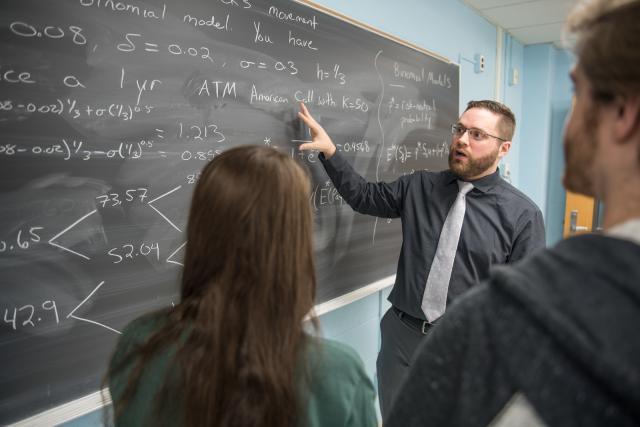
In the Actuarial Sciences program, learning is designed to be active, engaging, and collaborative. We emphasize guided discovery—a hands-on approach that helps you build a deep understanding of mathematical concepts by exploring and solving problems in meaningful ways. Rather than just memorizing formulas, you’ll apply math to real-world scenarios, often working in teams to discover how and why solutions work.
Your courses will include a strong foundation in calculus, statistics, and linear algebra—essential tools for any aspiring actuary. You'll take specialized classes like Actuarial Problem Solving: Probability and Financial Mathematics, which prepare you for the first two actuarial exams. You’ll also study economics, accounting, and finance, giving you a well-rounded understanding of how math is used in business and risk analysis.
Part of the learning experience happens in our interactive study room—a welcoming space where students collaborate, share ideas, and receive support from faculty in an informal setting. This dynamic environment supports your growth not only as a student but as a future professional, helping you build essential communication, teamwork, and problem-solving skills that are critical in the workplace. Whether you're breaking down complex equations or explaining your reasoning to a group, you’ll gain the confidence to think critically and work effectively with others.







